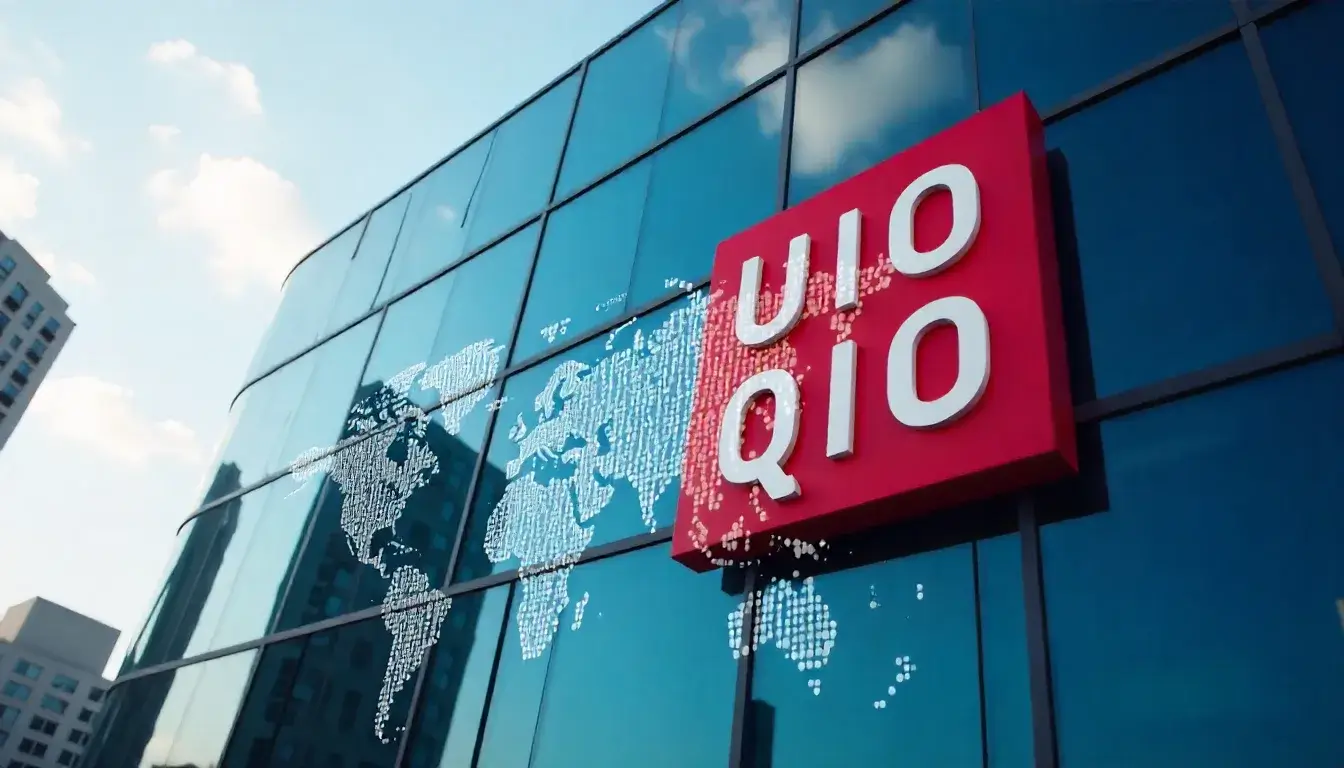Fast Retailing, the Japanese conglomerate behind Uniqlo, has emerged as one of the most influential players in the global fashion industry. Unlike typical fast-fashion brands, Fast Retailing’s success is built on a foundation of quality, simplicity, and technological innovation.
This article explores the company’s global business strategy, its brand ecosystem, technological integration, sustainability initiatives, and the leadership philosophy that drives its continued expansion.
We’ll also uncover how its approach to innovation and long-term planning has allowed it to rival giants like Inditex (Zara) and H&M on the world stage.
1. Introduction: The Powerhouse Redefining Global Retail
When discussing global retail success stories, Fast Retailing stands out as a model of consistency, innovation, and vision. As the parent company of Uniqlo, Theory, GU, and several other brands, Fast Retailing has built a multi-brand empire that thrives on a simple yet effective concept: LifeWear — clothing designed to make everyday life better.
Founded by Tadashi Yanai in Japan, the company’s journey from a small local clothing store to a global fashion leader mirrors the evolution of modern retail itself. Fast Retailing’s strategy combines Japanese efficiency with global adaptability, allowing it to compete in both developed and emerging markets.
2. The Origins of Fast Retailing: From Ube to the World
Fast Retailing’s origins date back to 1949, when Tadashi Yanai’s father opened a small men’s clothing store called Ogori Shoji in Ube City, Yamaguchi Prefecture. The name “Fast Retailing” came much later, symbolizing the company’s ambition to redefine the retail experience — making it more agile, efficient, and globally scalable.
In 1984, the company launched its first Uniqlo store in Hiroshima. The name, derived from “Unique Clothing,” embodied the brand’s vision to provide affordable yet high-quality everyday apparel. By focusing on basics rather than trends, Uniqlo set itself apart from the traditional fashion model.
The late 1990s marked a turning point. The introduction of the Uniqlo fleece jacket, priced affordably and made from advanced materials, became a cultural phenomenon in Japan. From there, Fast Retailing’s ambition expanded globally.
3. The Fast Retailing Business Model: Efficiency Meets Innovation
Fast Retailing’s model diverges sharply from the “fast fashion” approach. While brands like Zara and H&M emphasize speed and trend responsiveness, Fast Retailing focuses on timeless quality, functional design, and long-term customer loyalty.
3.1 LifeWear: The Heart of the Strategy
At the center of Fast Retailing’s business strategy is LifeWear, a philosophy that redefines apparel as a daily necessity rather than a fleeting fashion statement. Each product is crafted for longevity, comfort, and versatility.
LifeWear emphasizes:
- Functionality: Clothes that adapt to various climates and lifestyles.
- Simplicity: Designs that transcend trends and appeal universally.
- Affordability: Premium quality at accessible prices.
- Sustainability: Responsible sourcing and long-term durability.
3.2 Vertical Integration and Supply Chain Control
Unlike most retailers that rely on third-party suppliers, Fast Retailing maintains end-to-end control of its supply chain. From design to production and distribution, the company integrates every stage — enabling rapid innovation, quality assurance, and cost efficiency.
Through partnerships with strategic manufacturing hubs in Asia, Fast Retailing ensures consistent product quality while remaining agile enough to adapt to market shifts. This level of operational transparency also supports its sustainability goals.
4. Global Expansion: Building a Truly International Brand
Fast Retailing’s expansion strategy has been methodical rather than aggressive. Instead of flooding markets, the company studies cultural preferences and local shopping behaviors before entering.
4.1 Key Markets and Growth Timeline
- Japan: The company’s foundation and innovation hub.
- China: Now one of Uniqlo’s largest markets, contributing significantly to revenue growth.
- Europe & North America: Focused on flagship stores in urban centers to strengthen brand recognition.
- Southeast Asia & India: Emerging markets with long-term growth potential.
4.2 The Uniqlo Store Experience
Uniqlo’s global presence is defined by consistency. Whether you’re shopping in Tokyo, New York, or Paris, the brand experience remains uniform — clean stores, minimalist layouts, and products arranged for easy navigation. This standardization reinforces brand identity and customer trust worldwide.
5. Technological Innovation: The Engine of Fast Retailing’s Success
Fast Retailing’s success isn’t just about design — it’s about technology. The company has invested heavily in digital transformation, both in manufacturing and retail operations.
5.1 Smart Factories and Digital Supply Chains
By using AI-driven forecasting and data analytics, Fast Retailing minimizes waste and ensures inventory efficiency. Its factories integrate 3D knitting technology and automated production lines, reducing human error and improving scalability.
5.2 Seamless Omnichannel Experience
Fast Retailing bridges online and offline shopping through a seamless digital ecosystem. The Uniqlo App and in-store digital mirrors allow customers to explore product features, check availability, and even customize fits. This technology-driven model enhances customer engagement and loyalty.
6. Sustainability: Redefining Responsible Retail
As global consumers become more conscious about sustainability, Fast Retailing has taken major steps toward ethical production and waste reduction.
6.1 The RE.UNIQLO Program
This initiative encourages customers to donate used Uniqlo clothing, which is then recycled or repurposed for humanitarian efforts. This closed-loop model promotes circular fashion and reduces landfill waste.
6.2 Eco-Friendly Materials
Fast Retailing invests in the development of sustainable fabrics such as recycled polyester, organic cotton, and plant-based fibers. Collaborations with textile innovators like Toray Industries highlight the company’s commitment to sustainability.
6.3 Energy Efficiency and Carbon Goals
The company aims to achieve net-zero carbon emissions by 2050 through energy-efficient operations and renewable energy adoption across its supply chain.
7. Leadership and Corporate Philosophy
Tadashi Yanai’s leadership philosophy plays a central role in Fast Retailing’s success. His vision extends beyond profit — it’s about shaping a company culture rooted in adaptability and global collaboration.
7.1 The Yanai Philosophy
Yanai often emphasizes humility, learning, and long-term vision. His belief that “retail is detail” drives Fast Retailing’s meticulous attention to store experience, product design, and customer feedback.
7.2 Corporate Social Responsibility (CSR)
Under Yanai’s leadership, Fast Retailing launched numerous CSR programs focusing on education, employment equality, and disaster relief. This reinforces the company’s image as a socially responsible global leader.
8. Competitive Positioning: How Fast Retailing Stands Apart
In a market dominated by Zara, H&M, and Gap, Fast Retailing’s strategy stands out due to its non-trend-based model and focus on innovation over imitation.
| Competitor | Focus | Fast Retailing’s Advantage |
|---|---|---|
| Zara (Inditex) | Speed and trend replication | Timeless, functional design and supply chain control |
| H&M | Affordability and fast turnaround | Premium quality and technological efficiency |
| Gap | Basics and casual wear | Global branding and innovation-driven growth |
This differentiation has enabled Fast Retailing to maintain consistent profitability, even in volatile retail markets.
9. Challenges and Future Outlook
Despite its success, Fast Retailing faces challenges — from global supply chain disruptions to changing consumer habits. However, the company continues to innovate through:
- AI-based design forecasting
- Sustainable production scaling
- Market-specific localization
By focusing on innovation and long-term value creation, Fast Retailing is positioned to become the world’s No. 1 apparel company by sales, a goal Tadashi Yanai has publicly stated.
10. Conclusion: The Blueprint for Modern Global Retail
Fast Retailing’s success story is a lesson in balance — merging Japanese precision with global vision. Through LifeWear, technological innovation, and sustainable growth, it has redefined what it means to be a modern fashion retailer.
The company’s philosophy — “Changing clothes, changing conventional wisdom, changing the world” — perfectly encapsulates its mission. As retail continues to evolve in the digital age, Fast Retailing’s strategy provides a model for how to grow responsibly, sustainably, and profitably on a global scale.


Leave a Reply